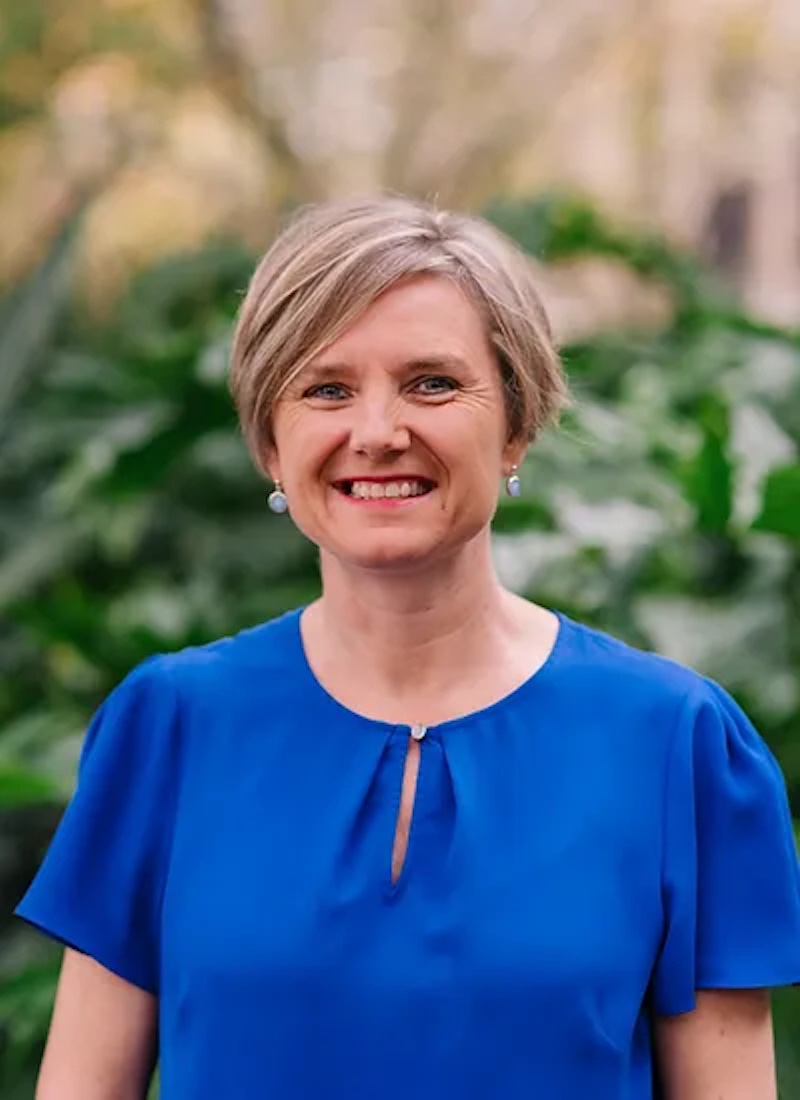Fiona Thomas is General Manager & Financial Adviser at Ethinvest
What was your first job?
I worked for years while still at school at McDonalds in Chatswood, which incidentally is one of the few McDonalds in Australia to close (having been replaced by a far superior northern Chinese soup and dumpling place!).
Working there taught me how to work really hard, and to follow a system/process plus I still count a couple of my co workers there as my close friends some 30 years later!
When did you know you wanted to work in finance/business?
I fell into working in Finance after doing an Arts (Asian Studies) degree. I just happened to get a job in a Superannuation/Insurance call centre. That said, I did always love Economics at school, and did quite a few of those type of subjects in my undergrad degree too.
When did you first discover the concept of Impact Investing?
I think I discovered impact investing or social enterprise at least, in 2005 when I was on maternity leave. I was doing some soul searching about what I would do when I returned to work (at Macquarie Group) and came across a Masters of Social Development course and started that.
During that period I had the first thoughts about trying to combine my financial services background with what I was really passionate about; poverty alleviation and the environment. I was lucky enough to travel with UNSW to a remote province in India (Mizoram) up near the border with Burma/Myanmar and work with some women there on a micro savings project. I then did some volunteering for Opportunity International, (a microfinance organisation) and remained on the lookout for a role that would let me cross the void between investment and social and/or climate justice related work.
While working for Bendigo & Adelaide Bank later on I had more scope to do this, and then made the transition to working with Ethinvest in 2016. That’s when I was really able to start to get my teeth into the impact investment world as an adviser and now General Manager.
What’s one exciting development you and your team have in the pipeline?
It’s been great to see just this week a market scan of climate related investment opportunities undertaken by Australian Impact Investments (Aii). As a client of Aii, Ethinvest advisers have been excited to access the teams’ deep dive into what’s coming in 2023 in this space.
What’s pleasing to see is that there are opportunities across a range of asset classes, from debt to private equity and venture capital, and it’s not just in renewable energy, though that remains a key area of interest for our clients. There are also some interesting options in sustainable food and agriculture, natural capital/resource efficiency, as well as Climate Tech opportunities.
What was the most interesting impact deal (from any team across Asia/Pacific) in the past 12 months?
The one that comes to mind most readily is not a new deal, but one that is now over 5 years into a 7+ year term. It’s the fantastic success of the Aspire Social Impact Bond (SIB), which is a ‘housing first’ intervention model designed to strengthen community and economic participation by previously homeless people in South Australia. In the 2022 report on the 5th year of the SIB, reading the personal stories of participants who have turned their lives around with the help of the Hutt St Centre, alongside the outcomes data and financial returns (over 12% p.a.) to investors, was really inspiring.
The other pleasing thing is that the SA government has committed to continuing the program via a follow-on funding arrangement with Hutt St, which will allow more people to benefit from the program in future. This ‘proving’ of a program’s efficacy, using impact investor funds, and clearly articulated and rigorously measured outcomes is exactly what SIBs are designed to do. In a year when share market and bond returns have been negative, almost across the board, it’s great to see investors in this type of “alternative” impact investment rewarded for their decisions to think differently about how their money is invested.
Name one high impact company (globally) that investors should keep their eye on?
A company I became aware of recently which is held within one of the listed global listed equities funds we use, is Lenzing – an Austria based, natural fibre company.
As we know, clothing is a huge issue from a pollution perspective, with the vast majority of clothing ending up in landfill. Other issues are the massive amounts of water and greenhouse gas emissions related to the production of fabrics. Lenzing produce fabric from dissolved, sustainably sourced wood pulp, rather than cotton. This allows them to produce fabric for clothing and homewares with 30% lower greenhouse gas emissions during production and 95% less water than organic cotton (which is at the better end of cotton production).
This is an example of a business selling a sustainable alternative to widely used material, which can have a big environmental impact.
What’s your vision for impact investing in 5 years time?
It’s probably a bit cliché, but the vision has to be that all investment would be impact investment, i.e., that the social and environmental impact of what a company (or fund) does are articulated and measured with the same rigour that the financial results and goals are.

